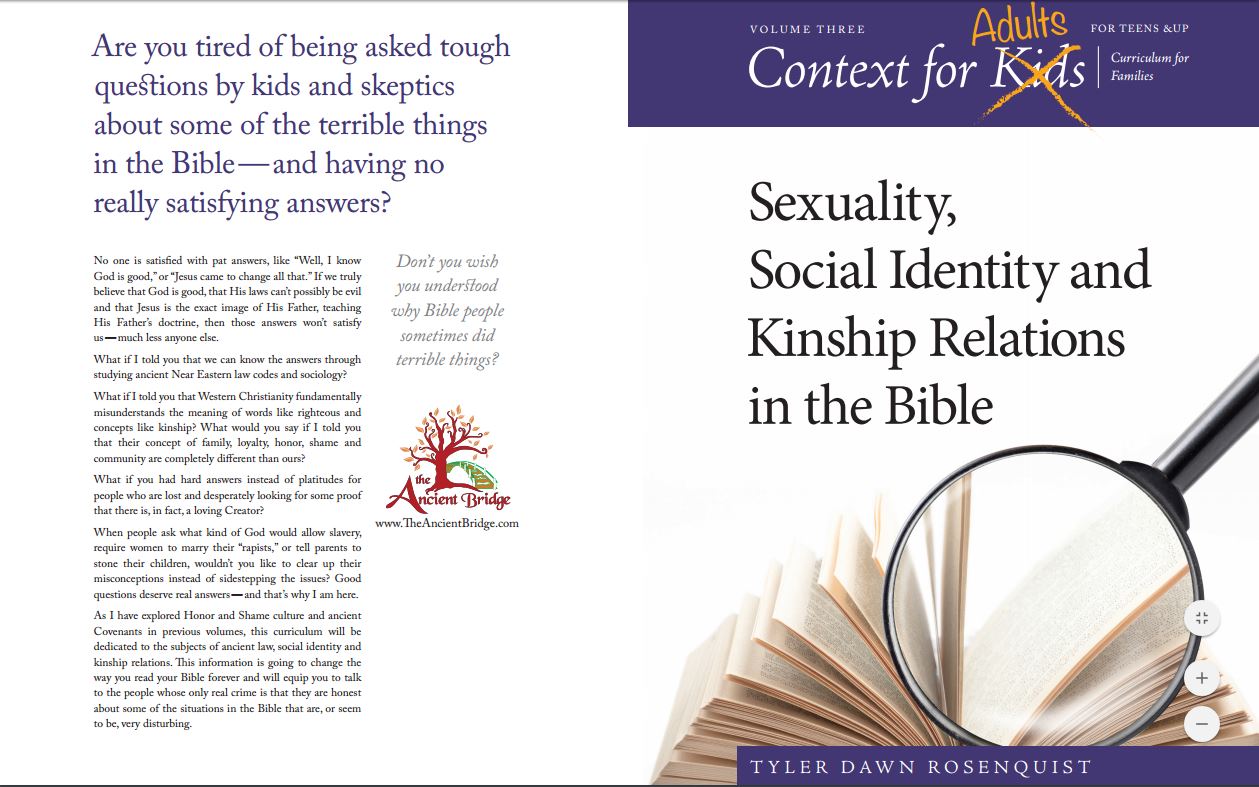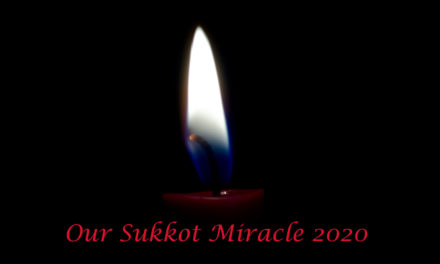One of the great crimes of religion is the misrepresentation of the character of our heavenly Father as it relates to how He feels about women. The Talmud (which contains the traditions of the elders Yeshua (Jesus) spoke of) and the epistles of Paul (taken out of historical and biblical context) have been used to subjugate and denigrate God’s precious daughters for far too long.
.
Unfortunately, these religious attitudes have been carried into families, even in modern times — girls are often made to feel that they aren’t good enough, that they are just potential whores, that their birth was a disappointment. But does the Bible, in context, back that up at all? What does the Bible say about women?
.
Gen 2:18 And the Lord God said, It is not good that the man should be alone; I will make him an help meet for him.
.
The first mention of woman is positive, that she was meant as a helper for the man. Not a slave, not a burden, not lesser. Same genetics — different plumbing, different strengths and different weaknesses. If man was sufficient, he would not have needed help. And in fact, we know that man was not sufficient because by one man sin entered into the world (Ro 5:12) when Adam failed the first commandment to keep (guard) the garden and allowed the serpent to enter in. Adam needed help.
As Eve was created to help Adam, so Sarah helped Abraham.
.
Gen 21:12 And God said unto Abraham, Let it not be grievous in thy sight because of the lad, and because of thy bondwoman; in all that Sarah hath said unto thee, hearken unto her voice; for in Isaac shall thy seed be called.
.
What about Isaac and Rebekah? Rebekah was a prophetess who heard the voice of God and knew His will for the children inside her, and made sure that the blessings fell upon God’s choice and not Isaac’s choice.
.
Gen 25:23 And the LORD said unto her, Two nations are in thy womb, and two manner of people shall be separated from thy bowels; and the one people shall be stronger than the other people; and the elder shall serve the younger.
.
What about Tamar? Judah had this to say about her when she made sure that he upheld Torah law, bringing forth an ancestor of Messiah.
.
Gen 38:26 And Judah acknowledged them, and said, She hath been more righteous than I; because that I gave her not to Shelah my son. And he knew her again no more.
.
And Miriam, Moses’ sister, what did the prophet Micah say about her? That she was one of the three leaders of Israel in the wilderness, a prophetess in her own right.
.
Micah 6:4 For I brought thee up out of the land of Egypt, and redeemed thee out of the house of servants; and I sent before thee Moses, Aaron, and Miriam.
.
Deborah was one of the greatest Judges of Israel, in that she led the nation and no sins are recorded against her. She even commanded the leader of the armies, who respected her counsel so much that he refused to go to war unless she came with him.
.
Judges 4:4-6 Now Deborah, a prophet, the wife of Lappidoth, was leading Israel at that time. She held court under the Palm of Deborah between Ramah and Ethel in the hill country of Ephraim, and the Israelites went up to her to have their disputes decided. She sent for Barak son of Abinoam from Kedesh in Naphtali and said to him, “The Lord, the God of Israel, commands you: ‘Go, take with you ten thousand men of Naphtali and Zebulun and lead them up to Mount Tabor.
.
I could really go on all day with virtuous and respected women from scripture, women of authority and wisdom. I could also tell you about a few wicked women, like Jezebel, the pagan Queen, but most of the women listed in scripture were Israelites and greatly respected. In the New Testament scriptures, the pattern holds. Priscilla is listed before her husband as a teacher in the book of Acts, following the cultural pattern of listing the greater before the lesser. Junia (a feminine name, in that the original manuscripts do not have the “s” at the end denoting male gender) is mentioned as outstanding among the apostles. We have witness after witness of women as helpers, as able to discern right from wrong, as giving wise counsel (like Abigail, who saved her husband’s hired men from the wrath of David), as being leaders, judges, and teachers — and every bit as able to hear from God as men. So where does the hostility come from?
.
Well, certainly not from the commandments found in Torah. You know, I used to be scared of the Torah because I read it through the eyes of self-rejection as a woman. I really didn’t believe that Fathers loved their little girls at all. And so, like many, I read it the way it was taught instead of the way it was written. However, I have found that from beginning to end, the commandments are not written to condemn women or subjugate them, but often to protect them from men!
.
There are laws protecting women from incest, and having to perform sexually during their menstrual cycle, from rape and from being abandoned after being seduced. There is a law that gives a way for a wife to prove she is innocent of adultery when her husband becomes jealous. There are laws that protect widows. The punitive laws against women are always equally punitive against men — adulterers were stoned to death, male and female together IF they were caught in the act by multiple witnesses. There were no unequal standards of justice, no more weight given to the testimony of a man than a woman. There is a law protecting a woman from having to travel for the feasts when it would be burdensome. There is even an interesting law that protects a woman who has made a foolish oath in the heat of the moment, by giving her husband or father the ability to nullify it when they hear of it. Lets face it, compassion is one of our female strengths, but it also sometimes leads us into dangerous promises, and our Heavenly Father has made allowances for it. We tend to lead with our hearts to a fault, at times, just as men lead with their heads (or fists) to their fault, at times. Its why we need each other!
.
But read in a negative light, these laws look like they are actually against women, and not in favor of them. When you read that only men are required to assemble for the feasts three times a year, it is a wrong mindset to see it as “women are not welcome.” Instead, think of what it would be like to haul small children to the crowded city of Jerusalem, or during your period when there were no modern sanitary products or facilities, or if you were really, really pregnant! When we begin to look at how each of the laws were there for the benefit of the woman, we begin to get a glimpse into the heart of God towards His daughters – to whom He entrusted the bringing forth of life and therefore special consideration and protection. So again, where is the hostility from? I believe that some of it is from an improper understanding of the prophets.
.
The scripture has much to say about our sinful nature, and that language is very feminine in nature — not because women are terrible, but because the assembly of believers ever since Sinai has been likened to the wife, or bride of God. And so there is much language in the Bible that seems to be derogatory towards women when it is directed at both male and female equally by using the picture of a woman who is unfaithful.
.
Now the fact that He uses an unfaithful woman is very telling about how He feels about women in general, and the picture it paints of how he sees women is not negative but very positive.
.
The art of comparison and contrast is a very important part of Jewish writing, especially parables. Now why was Messiah’s parable about the good Samaritan so effective? Because to his audience, Samaritans were contemptible, idolatrous half-breeds who practiced a form of mixed religion, half Bible and half Paganism. Samaritans were expected to exhibit certain qualities, and virtue was not one of them! So when Yeshua told the story of the virtuous Samaritan, the whole idea would have been quite shocking.
.
In the same way, when the prophets ranted about Israel being the whorish wife of YHVH — that would have been shocking as well, because your average Israelite wife was not a whore in the physical sense. Historically, women have been held to much higher standards than men in terms of virtue and piety. A man can go out and cheat on his wife and if his wife is virtuous, the parentage of the children is not in question, but if the wife is immoral, her children are forever suspected of being bastards. We women have always understood this. Proverbs 31 isn’t a laundry list of unachievable goals, its a recognition of the many roles women play on a regular basis. There is no such corresponding list for men recorded in scripture. But there is a large laundry list for men in Torah of what they are not allowed to do to us!
.
The entire idea that women are less than men is not to be found in scripture. Women are different than men. Not superior, but different. Anyone who has a problem with women has a problem with their Creator, because we represent aspects of His character that men struggle with — and vice versa. Of course God loves women — He uses feminine terms not only to shock the unfaithful, but also, and more importantly, to describe the body of believers that He will rule and reign over during the Millennium. If being feminine is to be equated with being whorish and unfaithful and lustful, then it must also be equated with being undefiled, pure and spotless. We must, in all things, look to the entire word of God. Every word is established by the mouth of two witnesses, so if only one person is writing something and it is unwitnessed elsewhere, look again and see if maybe the one witness is being misunderstood, badly translated, or taken entirely out of context.

Thanks to my sister Mindy Cole for allowing me to use this beautiful picture of her daughter, total cuteness overload.





















I have to think about the fact that the women were at the cross, the women were at the tomb and it was to the ‘woman’ that Yahshua first appeared. The woman reflects the relationship of man with YHVH in ways that are limited to men. Yes, men do not need to think everything through and they keep things simple, but the waters run deeper than that. YHVH knows He has planted within each woman the desire to be clean and without spot or wrinkle. Those desires have been used by the enemy to damage her so. Her desire to be wanted, needed, loved…. What a beautiful post Elizabeth, YHVH will restore all of us to our rightful place before the fall. The order of everything changed with sin, but He knows full well the end from the beginning.
Hi Tyler. Can you maybe refer me (or tell me) whether woman served as priests in the temple / tabernacle of YHVH in ancient Israel? I don’t know where I can find that kind of info. As far as I know Levites were men. Apparently there is no hebrew word for Levitess / priestess?
Just something I’m wondering about. Thank you so much!
No, women could not serve as priests–not only because of the issue of blood, of course, but also because in the ancient world female priestesses were almost always associated with ritual prostitution or other occult practices. Also, the work in the Temple was back-breakingly difficult and society observed a very strict separation between men and women. Women and men really only came in contact with one another at mealtime and bedtime–otherwise, men were with men and women were at home with other women and their children. Any woman out in the world was vulnerable to accusation, which was a common way for one family to gain more honor than another. Women remained in groups or in seclusion for their own protection, and there just were no respectable outside jobs for women. A woman could be a levite, because that is just a tribal affiliation, and a woman from a priestly house can eat the consecrated tithes just like a male, but she would not have the same duties 🙂 Hope that helps.
That helps a lot! Thank you so much for taking the time to explain. I’ve come to realize the necessity of truly studying the Temple. We are living in dangerous times and deception is rampant. Where I’m from, prophetic words are going out about a husband and wife ministry that is called to build the temple of YHVH here in my country (we’re definitely not in the land) Her husband was shown that he is from the tribe of Levi and will serve as the High Priest and she is a Levitess that will serve in this temple they are going to build. She has the Moses and Elijah anointing and according to their prophecies they can now accept tithes and offerings for the building of this temple. Please pray for us!!! Thank you once again
Oh wow, I would be totally freaking out if that were me. Wow, most people only claim to have or be one or the other–but both Moses and Elijah? One, there is no Moses anointing–he was unique. And two, Elijah came again in the person of John the Baptist. Scripture says nothing about a Moses or an Elijah anointing–unfortunately, that is as made up as the ministry of “watchman” which was just a metaphor for the unique role of Ezekiel and the other prophets but people love having titles and special jobs. If God has something special for you, then multiple unrelated people will tell you and then He will confirm it with you at some point. I have something that has been spoken over me starting about two years ago and various unrelated people dreamed it and told me about it. I didn’t get a confirmation for another year, and then I got another confirmation in September. But it isn’t the sort of thing to worry about–prophecies. Even if they are valid, our imaginations never line up for what it all looks like in the end 🙂 I remember when I dreamed I was surrounded by children in 2004. That one was scary.